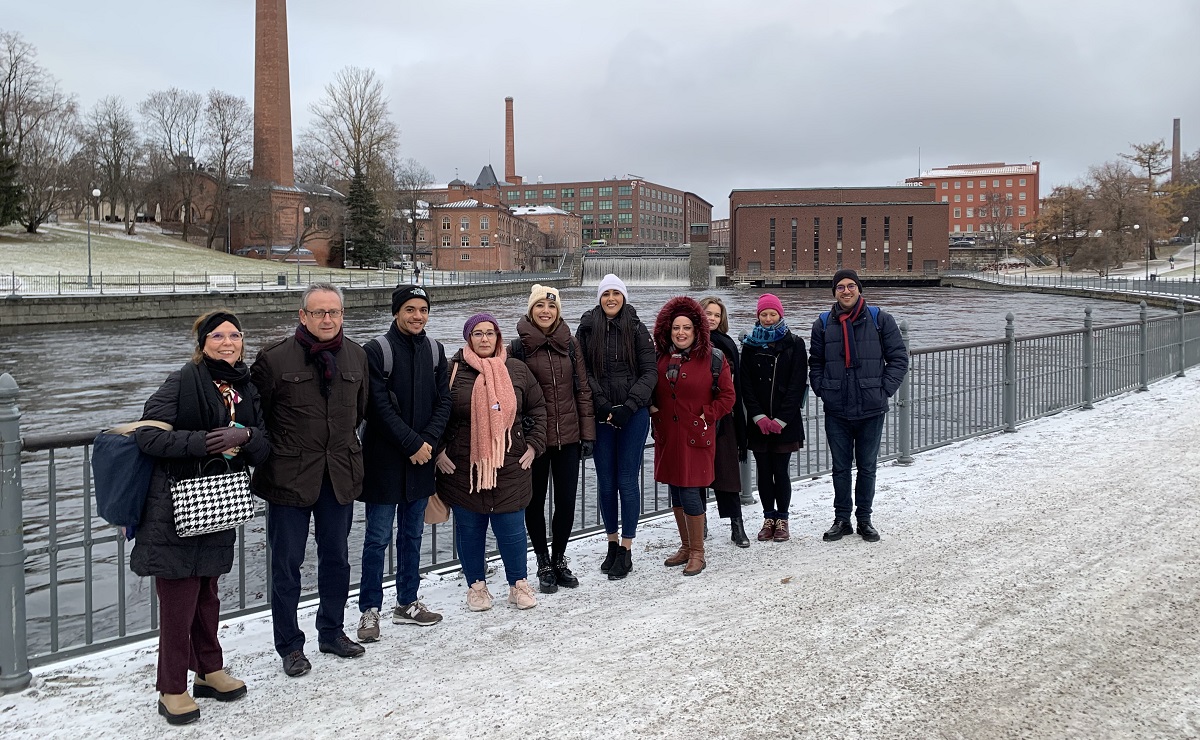In November 2022, Demo Finland hosted Tunisian youth politicians in Helsinki. The visit was a part of Demo Finland’s programme in Tunisia that has been ongoing for nearly 10 years. The participants on the visit were graduates of the 2020 Tunisian School of Politics, but due to the Covid-19 pandemic the visit was postponed to late 2022. The Tunisian School of Politics is organised in collaboration with Centre des Etudes Méditerranéennes et Internationales (CEMI), one of Demo Finland’s long-standing partners. Six youth politicians as well as the Director of CEMI Ahmed Driss and an interpreter took part in the visit. The youth politicians represented different political parties, from the largest parties in Tunisia to smaller, regional parties.
The aim of the visit was to introduce the participants to the different sectors of Finnish politics and discuss the state of democracy and youth participation both in Finland and in Tunisia. The visit programme included meetings with politicians and officials, lectures by Finnish experts as well as visits to political organisations and the governing bodies on the local level. The Tunisians also visited the Parliament and the Ministry for Foreign Affairs of Finland. Moreover, Demo Finland hosted a dialogue between Finnish and Tunisian youth politicians where both sides shared their experiences as young actives in the political sphere. Most of the events and meetings took place in the Finnish capital Helsinki, but the visit also included a day trip to Tampere, the third largest city in Finland.
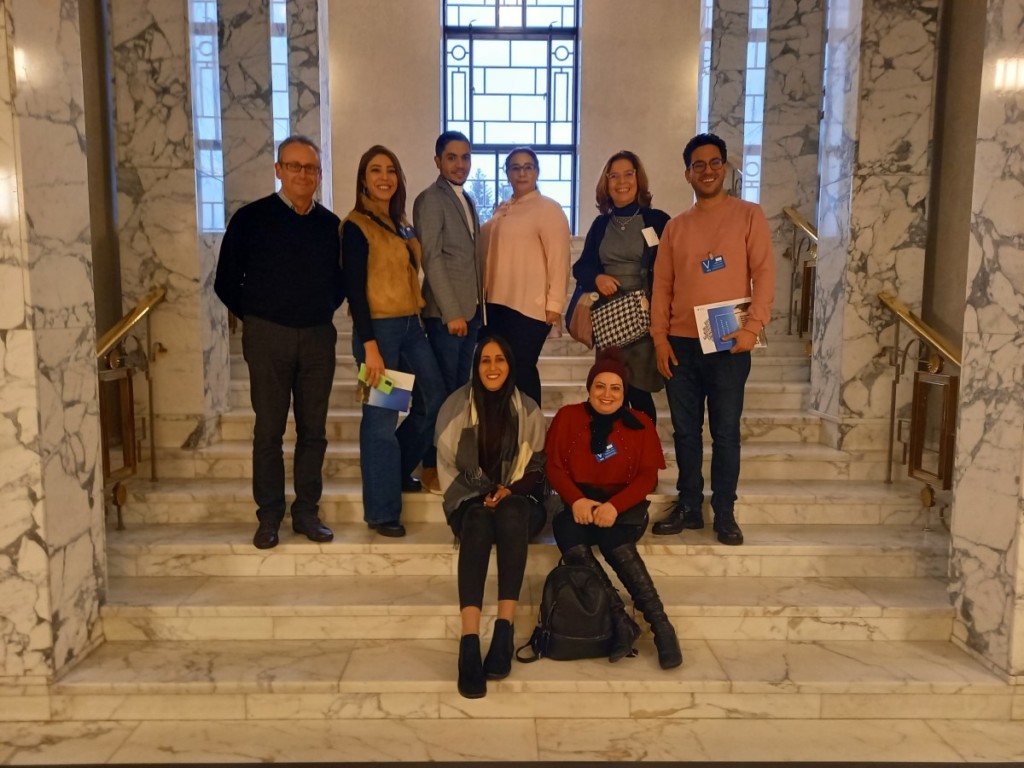
The current state of party politics and democracy in Tunisia is alarming. The Tunisian president Kais Saied has concentrated political power to himself over the last couple of years. Saied froze the Parliament in 2021, leading to its full dissolution by Saied in March 2022. Moreover, in 2022 Saied released a new electoral law as well as a constitution drafted by the president himself. In the election held in December 2022, political parties were banned from setting candidates and only individuals were allowed to run for office.
Such electoral change benefits rich persons and public figures, and thus has significant implications to gender equality as these persons are mostly men. Similarly, the new electoral law builds new barriers for youth participation. Thus, it can be said that the visit took place during a turbulent time in Tunisia, which sparked conversation particularly regarding the role of political parties and the state of democracy. (For more details on the new electoral law in Tunisia, we recommend: Tunisia’s New Electoral Law Is Another Blow to Its Democratic Progress – Carnegie Endowment for International Peace)
”With democracy we can ensure a good life for all and integrate all parts of society with all their differences in background, beliefs or ideology.”
Talel Hafdhallah, UPR (Populair Republican Union)
Discussions and questions about the state of democracy and political processes
The Tunisian School of Politics alumni were extremely active and interested to take part in conversation and learn about Finland’s democratic governance. This was particularly evident when they met with Finnish politicians and other representatives of political parties. The alumni met the Chair of Demo Finland, Jouni Ovaska (Centre Party) over dinner to discuss how Finland and the EU have dealt with the changing political environment in Tunisia and how foreign policy can support democratic development. Moreover, the Tunisian visitors shared their own experiences in party politics.
During their visit to the Parliament, the alumni also met with members of Demo Finland’s board Veronika Honkasalo (Left Alliance) and Vice-Chair Saara-Sofia Sirén (National Coalition). Over lunch Honkasalo introduced the recent process of Finnish NATO application and the parallel inter-party co-operation in the Parliament. The conversation also touched upon themes such as the role of media in Finnish politics and decision-making under state of emergency during the pandemic.
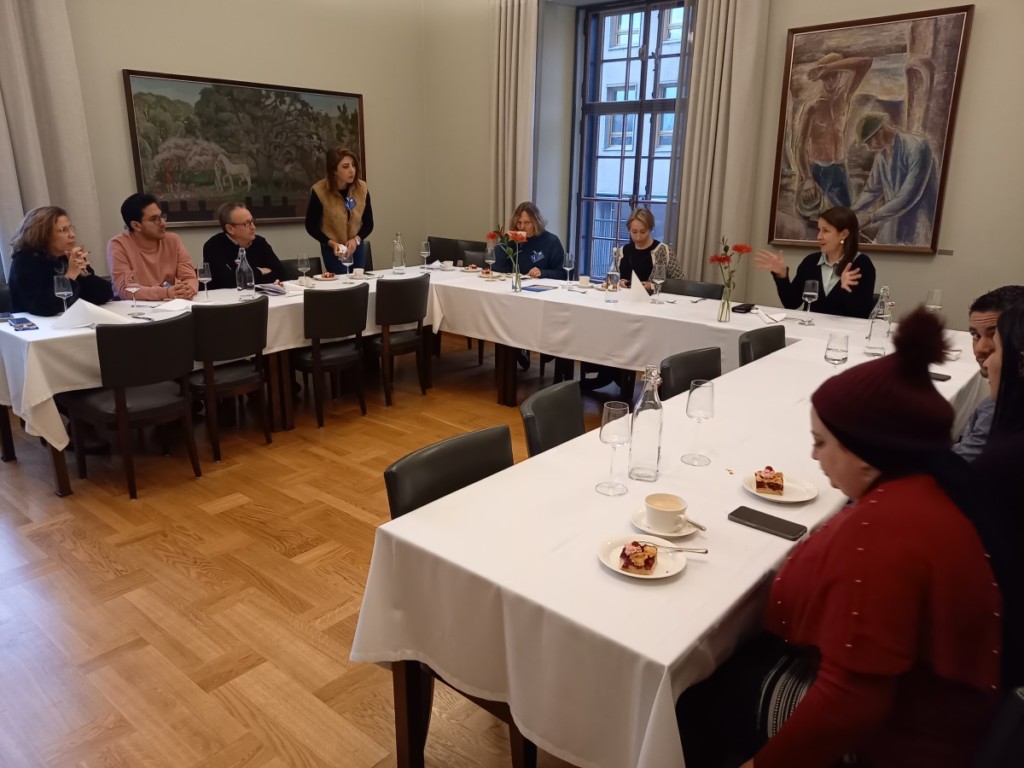
”One thing I learned is that the coalitions between parties seem to be working quite well. It’s good that there can be co-operation between parties despite their ideological differences.”
Sihem Ben Ali, Nidaa Tounes
The visit programme also included many lectures, which discussed the political system, citizen participation, political power and the role of public servants in Finland. The Associate Professor at the faculty of Social Science of the University of Helsinki Johanna Rainio-Niemi held a session on the Finnish political history and Niklas Wilhelmsson, the Ministerial Advisor at the Ministry of Justice’s Department for Democracy and Public Law, Democracy and Elections, gave an extensive introduction to the electoral system in Finland. Silla Kakkola, The Secretary General of The Coalition of Finnish Women’s Associations NYTKIS, discussed female political participation and gender equality in Finnish politics and Kaisa Vatanen from the Social Democratic Party presented on programme work and planning within political parties leading up to the elections. Johannes Jauhiainen, a Borough Liaison from the City of Helsinki discussed the citizen participation on the local level and Tiina Kyöttilä-Vettenranta, a lawyer at the City of Tampere, introduced the system of local governance in Tampere.
The political history as well as the most recent turns in Finnish politics sparked lots of thoughts and questions among the Tunisian visitors. The Tunisians had particular interest in the post-Civil War reconciliation as well as questions of equality and equity in Finland. However, not all remarks about Finland were positive and particularly the violence targeting women in Finland stirred criticism. However, Talel Hafdhallah concluded that:
”We learned that Finland was able to overcome a Civil War and afterwards they were able to create a system based on consensus where they learned to work together, in spite of their differences.”
Talel Hafdhallaf, UPR (Populair Republican Union)
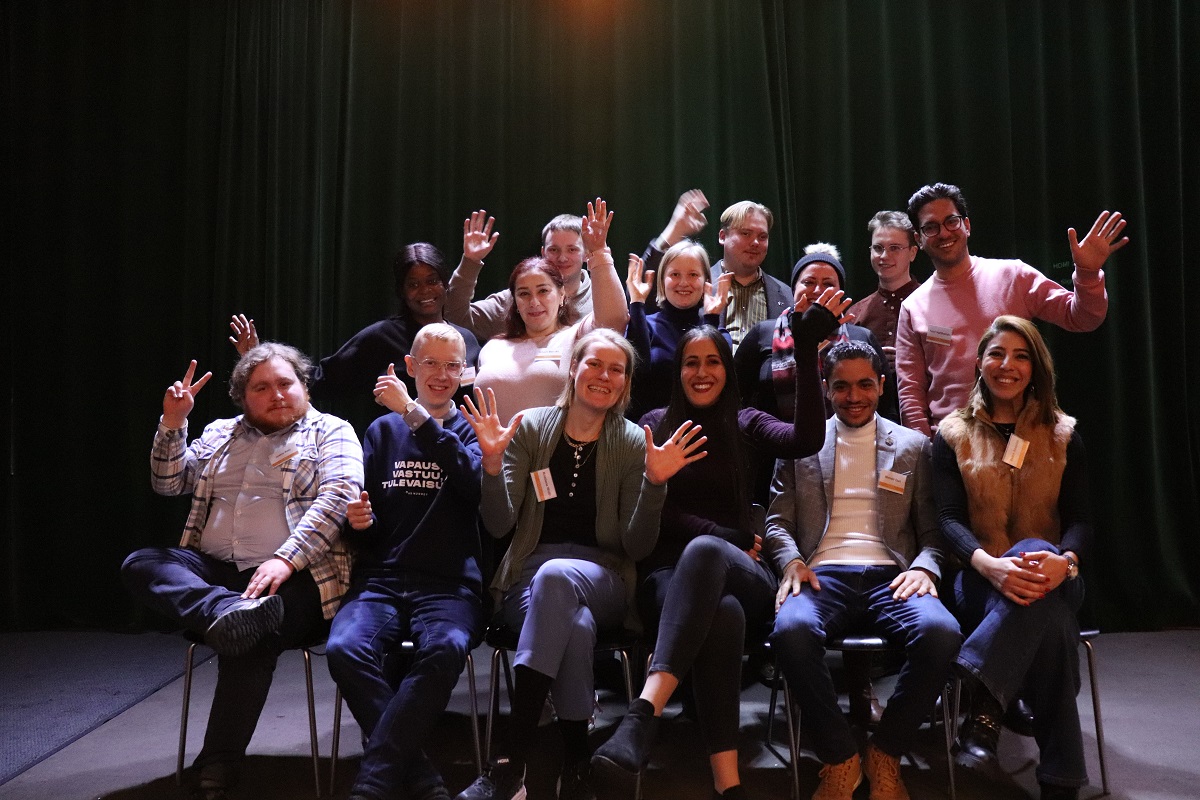
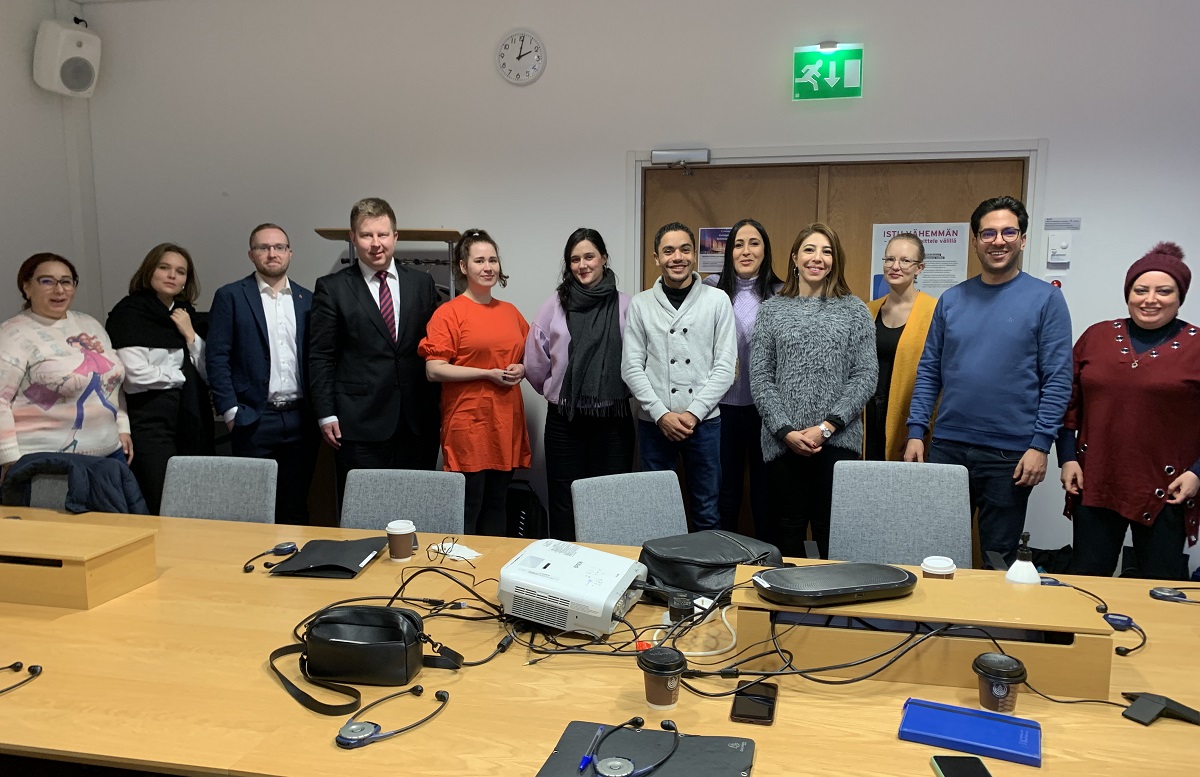
Meetings and peer-to-peer discussions with young politicians
The Tunisians also met with young members of the Tampere City Council, Tampere Children’s Parliament and Tampere Youth Council. Tampere City Council representatives Brigita Krasniqi (Green League), Antti Moisander (Finns Party), Petri Rajala (National Coalition) and Inna Rokosa (Social Democratic Party of Finland) shared their experiences and discussed relations with different stakeholders such as young voters, civil society actors and locals on the municipal level. Another point of discussion was the prejudice encountered particularly by young politicians both in Finland and Tunisia.
Demo Finland also arranged a dialogue between Finnish and Tunisian youth politicians where the participants discussed the reasons why they are engaged in politics and what could be done to improve youth participation in party politics. The Tunisian experience focused particularly on the youth’s role in 2011 Arab Spring and subsequent change in the spirit and vision for the country’s future. Youth politicians from both countries agreed that young people need to remain active in political parties to defend democracy particularly when it is under threat. The meetings between Finnish and Tunisian youth were of particular importance as they gave a chance for peer exchange and peer learning over political boundaries.
Ideas and inspiration
The visit received positive feedback and the Tunisians enjoyed themselves in late November’s snowy Finland. Belkis Abdallah from Al Badil-party said she learned to appreciate the work done in parties and in the field of politics in a new way:
”The political work of the parties and the political scene [in Finland] is very successful but this is not out of the blue. Trust between political parties and the voters has been built over a long period of time. It only happened because political classes and groups have worked together towards this kind of consensus.”
Belkis Abdallah, Al Badil
Sihem Ben Ali, from Nidaa Tounes party, made remarks about Finland’s local governance:
“I had the experience that governance in the local level is very successful. There is a sense of social order and security in the streets.”
Sihem Ben Ali, Nidaa Tounes
Moreover, in their feedback, the Tunisians highlighted that the visit gave them inspiration and new ideas regarding governance, electoral processes and inclusion. Many pointed that at the end of the day the political systems between Finland and Tunisia have also a lot of similarities. Some said that they gained new ideas as to how to tackle issues in politics in Tunisia.
Thanks to all the active and inspiring alumni of the Tunisian School of Politics and those who took part in the visit! Merci beaucoup! Shukran!

